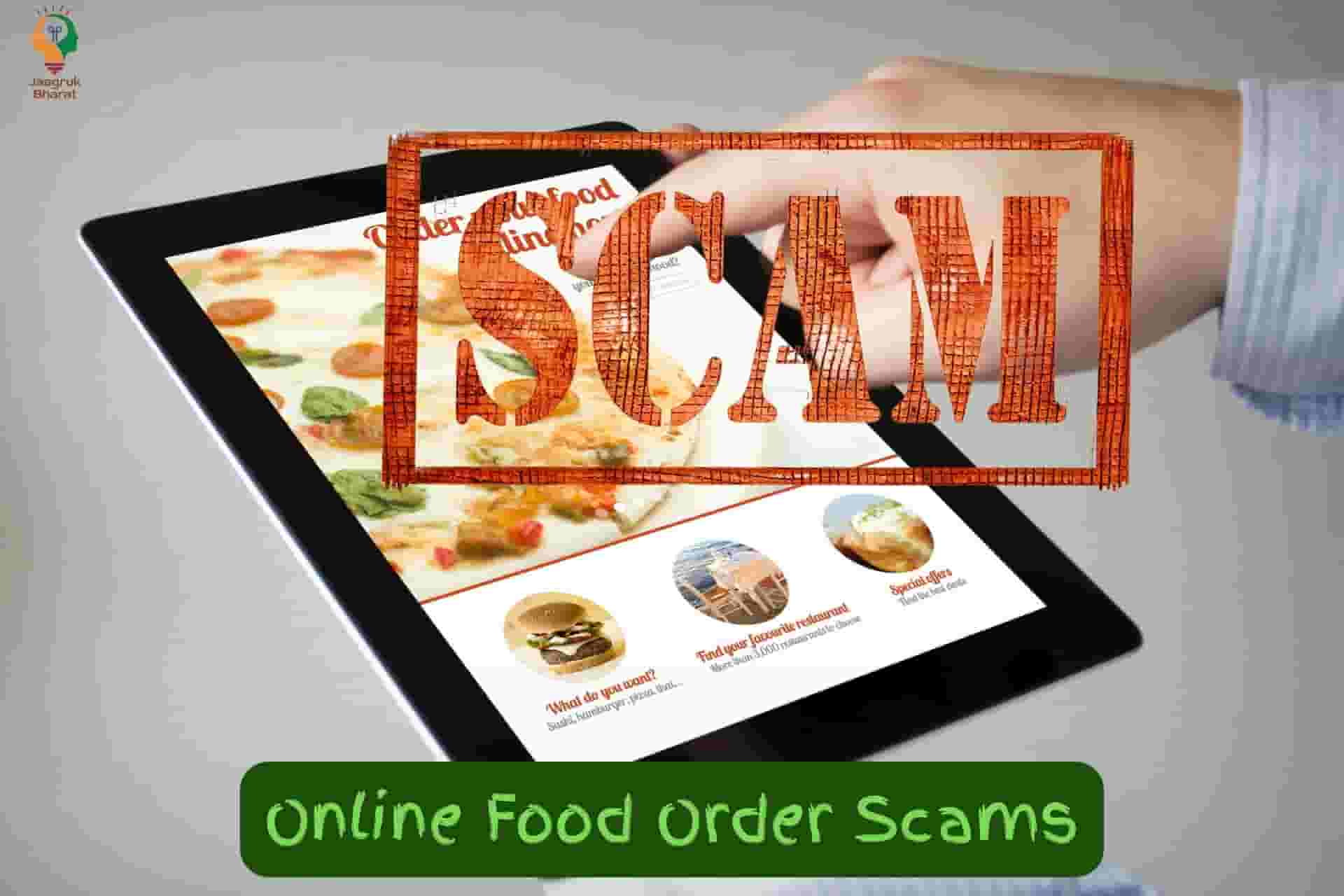What Are The Top Online Food Order Scams In 2025?
Updated: 05-12-2025 at 3:30 PM
4k


Food delivery apps are a little less of a luxury these days as ordering food is far easierthan it once was. However, with more use of such apps, the opportunity for scammers is even wider. These fraudsters exploit the trust of unsuspecting customers, so users need to educate themselves.
In this article, we will look at the most common food delivery scams, including the new Swiggy meat scam, which highlights the need for awareness of the dangers of online transactions.
Overview
The table below summarises some key points about scams to get free food that one should be aware of.
| Scams concerning | Food delivery scams |
|---|---|
| Type of scams | Fake Location, No-Card Fraud, Fake Claims, Account Takeover, etc. |
| Recent famous cases | Promo abuse In India, Swiggy Scam, Ghost Orders In New York, International Location Spoofing Incident |
| Prevention tips | Beware of fake promotions, enable Two-Factor Authentication, use Official Customer Support |
Latest Swiggy Food Delivery Scam
The Swiggy customer service scam is a troubling return to the hard truth of the internet. An old man searched for the customer service number online, where he saw that he could call that number. He ended up losing ₹3 lakhs.
The fraudsters convinced the customer to reveal his personal and bank details, which resulted in his account being accessed and his SIM being cloned. Swiggy quickly stated it does not have a customer care number and has asked users to reach out through the app support feature.
Different Types of Food Delivery Scams
There have been reports of a rise in Food delivery scams related to scams to get free food which affect customers, businesses and involved parties badly. Scammers use food delivery services' various weaknesses using the following methods:
-
Account Takeover (ATO): This mode involves a scammer gaining access to a user’s account login details mainly through phishing and brute force attacks. Thereafter, they make purchases, use loyalty points or sell the account details over the dark web.
-
Fake Claims: This type is practised by customers themselves when they place an order then consume the meal and later report that the meal was not delivered to get their money back. This kind of misuse increases business costs as well as erodes trust between clients and businesses.
-
No-Card Fraud: This practice has some similarities to ATO as scammers utilise stolen carding information to place an order without the need to produce the actual card. This kind of fraud is not noticed most of the time until the client checks his or her account statements.
-
Fake Location: To commit this kind of delivery driver scams, criminals knock off the GPS location of the food delivery application so that they can trick the application into thinking that they are in the deliverable area which often causes undelivered orders and additional costs for the delivery men.
-
Promo/Incentive Abuse: To obtain promotional offers and discounts, scammers create several fake accounts or use fake referrals, costs which are borne by food delivery providers.
-
Automated Order Acceptance: Scammers use automated tools to accept new orders that are not meant for the scammers, but rather for other nearby stores and sell them to customers. This causes delays for the customers.
-
Ghost Orders: Through actual accounts, they generate non-existing fake orders and then request refunds citing that the orders were never delivered. Such schemes kill the earnings of the restaurants and cause distrust.
Read more: Electricity KYC Scam: DoT To Block 392 Handsets Involved In Cybercrime.
Top Food Delivery Scams in 2024
Food delivery scams in 2024 show how the methods used by fraudsters in this industry have advanced over time. Here are some incidents notable regarding the impact on customers and businesses as well:
The Swiggy Scam
As stated, a postgraduate student fell for a fake Swiggy call centre scam whereby the person lost ₹ 3 lakhs in funds. The swindlers were able to copy his SIM card to use to obtain important bank details.
International Location Spoofing Incident
A problem emerged against a delivery application in Europe whereby location spoofing attacks were used with perpetrators looking to commit scams to get free food wherein they fake ordered and later made false reports of not receiving the products.
Ghost Orders In New York
Scammers created multiple fake orders from one restaurant, leading to hundreds of dollars in “undelivered” refunds, impacting the business’s image and income.
Promo abuse In India
A group was able to abuse the food-delivery referral entity of the platform by creating numerous fake accounts thereby costing a lot of money for the application.
Tips To Keep Your Orders And Information Secure
It’s sensible for you to maintain the privacy of your orders and personal information while dealing with the food delivery system. Some helpful tips are listed below for data protection:
-
Use Official Customer Support: Use the official help options using their app or the official contact numbers and avoid those picked up from Google searches.
-
Enable Two-Factor Authentication (2FA): Set up a 2FA to increase the protection of your account from unauthorised access.
-
Check Your Bank Statements Regularly: Transaction of funds through the account must always be double-checked with no new and strange transactions that go unnoticed and should be reported immediately.
-
Beware of Fake Promotions: Dangerously sweet promotions should not be practised where customers are required to share their details outside the app.
-
Secure Payment Systems: Use this platform to make your transactions so that your card details are not saved if possible.
-
Report Unusual Activities: Activities which appear unusual on the account should be reported as soon as possible to the support team of the application so that more losses do not arise.
Swiggy Customer Service Scam
One recent instance is the ‘Swiggy Customer Service Scam’ on Google, in which an elderly man recently lost 3 lakhs. The elderly man, in his need to connect with Swiggy’s customer care, searched their mobile number on Google. But instead of Swiggy's customer service, he selected the wrong number, making him the target of scammers. After the first call, the man had Rs 3,500 debited from the account. The next time, scammers convinced him to give more bank and personal details. Followed by cloning and copying SIM and phone details, and an illegal transaction of 3 lakh rupees from the account.
The elderly man’s son, Nikhil Chawla, posted on X (formerly known as Twitter) and stated, "My dad has been the victim of cyber time bank fraud. He ordered food from Swiggy, but he didn’t get the order. So 3–4 hours later, he called for a refund, and someone duped him for a UPI of 3 lakh, took credit card details, and copied his SIM. Over 3 lac deducted @airtelindia”. Mr Nikhil had pleaded with the Delhi police to help him out. Using their official websites and guideline numbers, they help lodge a case.
Also Read: Chakshu Portal: A New Government Tool To Report Fraudulent Calls And SMS.
Swiggy’s Response On The Customer Service Scam
Swiggy later responded, clarifying that they do not have an official customer care number and they never ask their customers to give any OTPs or bank information over a phone call. For grievances and queries, customers are required to the in-app support. They also offered any kind of help if needed from their side to help the victims get justice.
After the incident, Swiggy also established several other security measures such as multi-factor authentication, regular security audits, and campaigns for spreading awareness about cybercrime to protect people from cyber criminals.
Lessons Learned From Swiggy Customer Service Scam
The Swiggy Customer Service Scam posed as a reminder for others to:
-
Staying vigilant.
-
Not providing any sort of bank-related details or card details over a phone call to strangers.
-
Using secure passwords.
-
Enabling two-factor authentication to protect accounts.
-
Educating oneself with the scam tactics used by criminals to execute cybercrime.
Conclusion
The recent Scams involving food delivery services like the Swiggy scam warn users to be always careful. Understanding the most common scams and following some online etiquette can go a long way in securing customers’ information and reducing the risk of scams. With the right level of care, individuals and platforms alike can improve the security features of food delivery services in the online world.
Visit Jaagruk Bharat’s Cyber Crime Complaint Service
At Jaagruk Bharat, we’re committed to helping you stay safe online. If you’ve been a victim or suspect of fraud, visit our Cyber Crime Complaint Page to report the incident and seek guidance. Our team ensures your complaint is directed to the right authorities with clarity and speed.
You can also reach out to Jaagruk Bharat through their community page with any questions that you might come across.
Frequently Asked Questions
0
0
4k
0
0
4k Views
0
No comments available





Our Company
Home
About
T&C
Privacy Policy
Eula
Disclaimer Policy
Code of Ethics
Contact Us
Careers
Cancellation & Refund Policy
Categories
Women
Insurance
Finance
Tax
Travel
Transport & Infrastructure
Food
Entertainment
Communication
Government ID Cards
E-commerce
Traffic guidelines
Miscellaneous
Housing and Sanitation
Sports
Startup
Environment and Safety
Education
Agriculture
Social cause
Employment
Disclaimer: Jaagruk Bharat is a private organization offering support for documentation and government scheme access. We are not affiliated with any government body. Official services are available on respective government portals. Our goal is to make processes easier and more accessible for citizens.
All Copyrights are reserved by Jaagruk Bharat